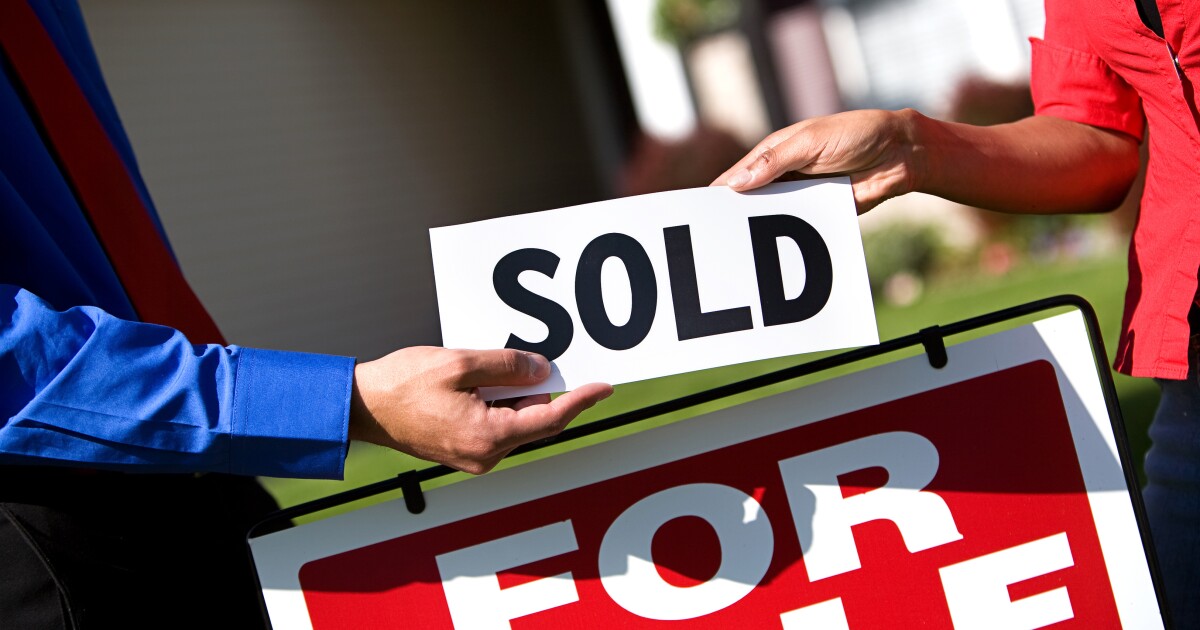
Mortgage rate buydowns may not make economic sense for consumers, because the differential between
Discount points have become a sales tool used by homebuilders; D.R. Horton reported that
The Freddie Mac study found that 58.8% of borrowers who made a home purchase paid discount points in 2023, compared with 31.3% during 2021, when mortgage rates were 3% or lower, and 53.6% for 2022, as they started to climb. Last fall,
The survey was restricted to 30-year fixed rate conforming loans, with borrowers whose credit score was 740 or higher and whose loan-to-value ratios were between 75% and 80%.
For those making a home purchase last year, more than half of the borrowers surveyed paid discount points, but the interest rate differential between those who paid points and those who didn't is very small, Freddie Mac claimed.
"Through November 2023, the average effective rate on purchase loans for borrowers who did not pay discount points was 6.69% versus 6.86% for those who did pay points," said a blog posting from the Freddie Mac Economic and Housing Research Group with its latest outlook. "This result seems to suggest that paying discount points may not be worth it from the consumers' point of view."
The average effective rate is the points paid divided by four added to the interest rate.
However, the post cautioned that Freddie Mac did not control the sample for borrower observed and unobserved attributes that could impact the rate.
"Therefore, we cannot say with certainty that for any particular borrower, the relationship between discount points paid and interest rate is negative," Freddie Mac said.
For purchase loans where the borrowers paid points, the unpaid principal balance was $362,000 in 2023. This compares with a UPB of $373,000 where the rate was not bought down.
The average annual income of the no points borrower was $148,000, versus $140,000 for someone who paid points.
In Hawaii, which gets a special conforming loan limit because of the high housing prices, 77% of prime purchase borrowers bought down the rate. New Mexico was next at 75%, with West Virginia and Oregon at 74%.
At the other end of the spectrum, just 36% of Vermont homebuyers paid discount points, followed by 37% in Iowa and 44% in Massachusetts and Illinois.
Going forward, the question is what role, if any, will buydowns have in the housing market.
"If interest rates stabilize in 2024, it will be interesting to observe whether borrowers opt to pay fewer points, or if the recent uptick in paying discount points is a more permanent shift in the mortgage market," the posting said.
Affordability, one of the drivers of rate buydowns, remains a big concern. The First American Real House Price Index increased 11% on an annual basis in November, which reduced affordability to levels not seen in three decades, Mark Fleming, its chief economist, said in a press release Tuesday.
Nominal home prices grew by 7.7%, according to First American's calculations, during that month's mortgage rate increase.
"For home buyers, holding prices constant, the only way to mitigate the loss of affordability caused by higher mortgage rates is with an equivalent, if not greater, increase in household income," Fleming said.
"Even though household income increased 3.4% since November 2022 and boosted consumer house-buying power, it was not enough to offset the affordability loss from higher rates and rising nominal prices."
A survey by Remax found 34% of potential homebuyers polled said they would put less than a 20% down payment in order to buy a house. Of this group, over three-quarters said they would do so because it's what they can comfortably afford. But half would expect to make a down payment of 10% or less.
"Affordability remains a key concern for homebuyers as home prices, interest rates, and inventory continue to fluctuate," Nick Bailey, president and CEO of Remax, said in a press release. "Despite today's economic environment, it's clear that homeownership is still a priority for many, and the results of our survey prove that buyers are willing to go outside their comfort zone to reach their goal."



